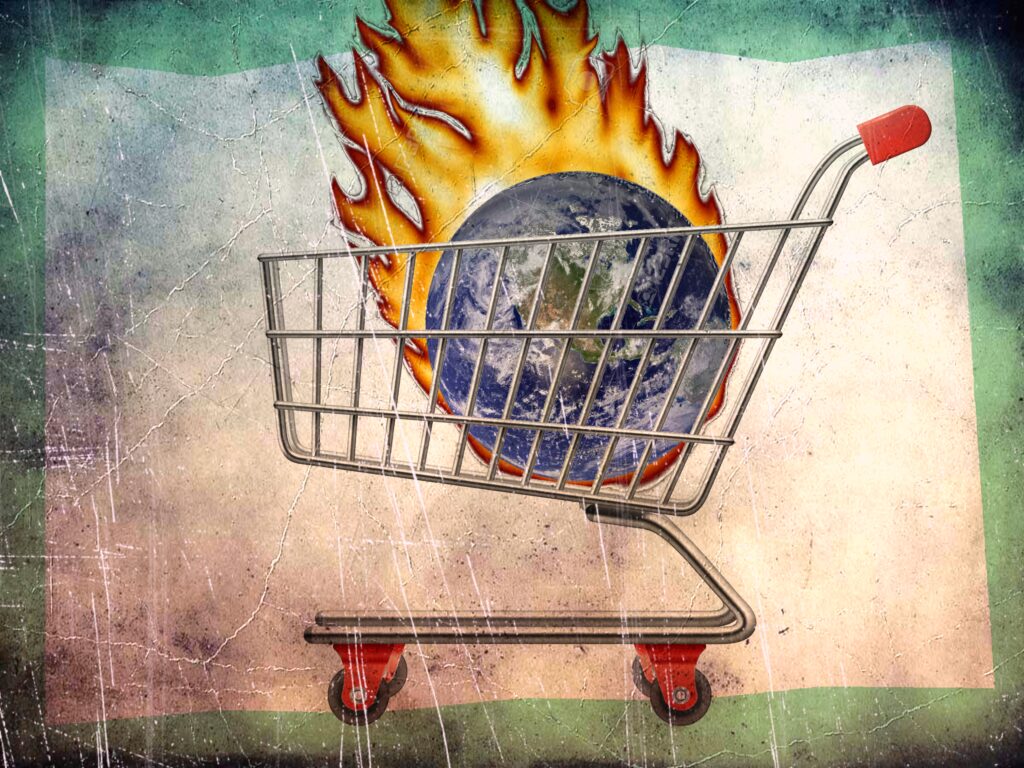
Imagine this: you’re walking down the shopping aisle, trying to live a better lifestyle for you and the Earth, so you reach for a product that looks recyclable. The label claims it’s made out of recyclable plastic and with a purchase of the product, a portion of the revenue will go to some charity that you have never heard of before. You buy the product and realize a few things upon further research: the supposed recyclable item has the same content and ingredients as the standard, non-recyclable item. Even more concerning, the package it came in can’t be recycled in your area, and the charity that is receiving a portion of profits has been exposed for not releasing funds. While this is an extreme hypothetical, it is an example of Greenwashing.
In recent years, more companies have rebranded products to seem more eco-friendly. They advertise recycled cardboard with the “buy one, give one” slogan plastered all over it. While some companies may actually use eco-friendly materials and plant a tree to give back to a community in need, corporate America has picked up on consumers wanting to be more conscious of what they buy and has targeted them by changing the look of their product packaging but not their business model or product.
This is called Greenwashing. It is a relatively new phenomenon where companies lure in consumers by marketing their products as eco-friendly. Investopedia, a marketing site, gives an example of Greenwashing:
” … Companies involved in greenwashing behavior might make claims that their products are from recycled materials or have energy-saving benefits. Although some of the environmental claims might be partly true, companies engaged in greenwashing typically exaggerate their claims or the benefits in an attempt to mislead consumers. Greenwashing is a play on the term ‘whitewashing,’ which means using misleading information to gloss over bad behavior.”
Greenwashing works by creating a “green sheen,” an attempt to capitalize on the growing demand for environmentally sound products, whether that means they are more natural, healthier, free of chemicals, recyclable, or less wasteful of natural resources. One of the first instances of Greenwashing originated in the 1960s when hotels began asking guests to reuse their towels to save the environment. In reality, the hotels reaped the benefit of lower laundry costs. Since then, Greenwashing has appeared in products from fashion to food.
Besides misleading consumers, other analysts believe that Greenwashing will do more harm than good to the climate change and eco-activism movements.
“…[Greenwashing] is not only misleading, but it’s also really not helping to further sustainable design or circular economy initiatives. Thus, environmental problems stay the same or more likely, get even worse, as greenwashing often sucks up airtime and misdirects well-intentioned consumers down the wrong path,” Leyla Acaroglu, sociologist and sustainability provocateur, reports on Medium.
The most notable impact of Greenwashing is the belief that because something has a recyclable logo on the label, it can be recycled. Unfortunately, National Geographic reports that 91% of plastic produced globally is NOT recycled or is unable to be recycled. This lack of recycling has led to a Texas-sized plastic island, floating around the Pacific Ocean, leading scientists to believe that there will be more plastic in the ocean than fish by 2050.
“Greenwashing is all about misdirection showing one thing that distracts you from what is really going on. The main issue we see is that greenwashing takes up valuable space in the fight against significant environmental issues like climate change, plastic ocean pollutions, air pollution, and global species extinctions,” Acaroglu explains.
Studies from a 2015 Nielsen poll showed that 66% of global consumers are willing to pay more for environmentally sustainable products and this number jumps to 72% among millennials.
“People are getting more aware of the rarity of the Earth and the ways that our actions impact it,” says Jason Ballard, CEO of sustainable home improvement retailer TreeHouse.
At the same time, he notes that Greenwashing has become more complex. “It’s misdirection, and it’s intended to shift the customer’s focus from a company’s appalling behaviors to something that’s peripheral,” Ballard says.
In sum, to avoid becoming a victim of Greenwashing, investigate and research the brand/company to understand their past, present, and future business models.
